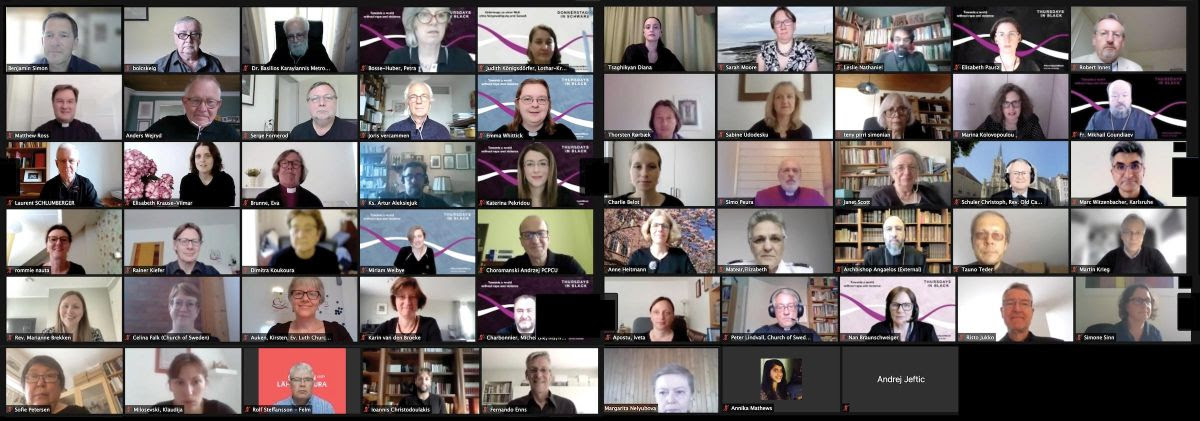“The COVID-19 pandemic brought forth the relationship between the church and the secular. We have witnessed all tensions rekindling between churches and states and, at the same time, new forms of collaboration and alliances emerging in the service of the broader community,” Katerina Pekridou, executive secretary of Conference of European Churches, stated in her opening remarks. Pekridou also announced a Conference of European Churches pre-assembly meeting, to take place in Warsaw, in February 2022, to prepare European participants for Karlsruhe, with a thematic focus on how European churches can best contribute to world Christianity within an increasingly secular context. Participants reflected extensively on a series of questions with direct impact to the European societies, churches and ecumenical work: How can we avoid self-centered thinking among nations and regions and build international solidarity? How do we develop societal literacy and engagement with science to respond to the problems of the world? The topic of racial justice and white supremacy was prominent throughout the discussion. Racism and the connection with Europe’s response to the refugee issue was recognized as one of the main topics European churches need to respond to, self-critically and with an authentic reflection on what it means to be white in the contemporary global context. “As churches working together, what is the rationale as we discuss the topic of racism? How do we look at our own institutional picture and what is the Biblical imperative, the reason we are compelled to do something in connection to the issue of racism?” asked Rev. Canon Dr Leslie Nathaniel (Church of England), WCC central committee member. It is time for the European churches to start a discussion on how the ecumenical movement and WCC should look in the future in order to find ways to deliver to societies in need the word of God and the Christian messages that bring meaning to life. “We are talking to the world as churches in a period of a global pandemic and we are listening to their agony, the anxiety of death. We are coming in this space as WCC and Conference of European Churches to a world that is in pain and suffering. As Christians, beyond our confessional differences, the core question is how would we transform this pandemic of death to a pandemic of faith. How do we turn the anxiety of illness to a praise of life?” said Prof. Marina Kolovopoulou, a WCC central committee member from the Church of Greece. “This pilgrimage to life is a great opportunity for all Christian churches in Europe to strengthen the feeling that, as Christians we have gone beyond death.” WCC central committee meeting 2021 The 11th Assembly of the WCC in Karlsruhe, Germany | 

